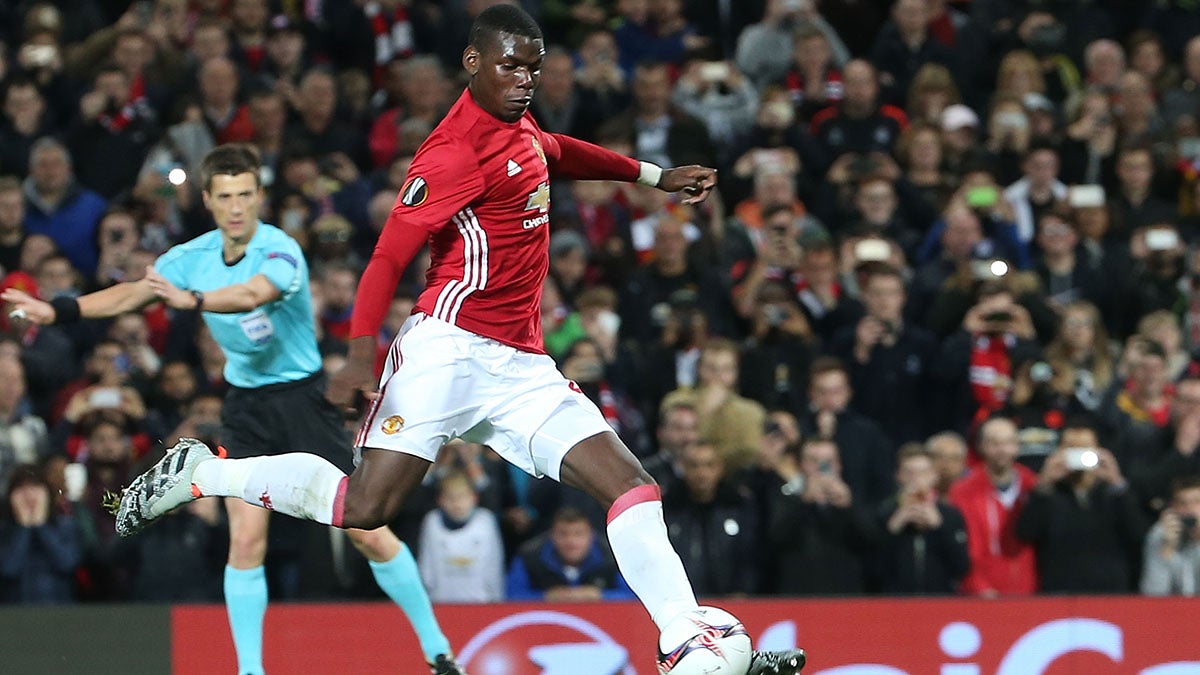Opinion: Premier League's domination of Europe the antithesis of Brexit

Many of their fans may be eager to Brexit on Halloween (the new, appropriately ghoulish target date for the United Kingdom to leave the European Union), but English Premier League clubs are very much enjoying being a part of Europe these days. Within the last week, four English teams faced off in the two European cup championship finals – Liverpool beat Tottenham in the European Champions League final played in Madrid on June 1, and Chelsea prevailed against cross-town London rival Arsenal in the less-storied Europa League final in Baku on May 29.

The all-English European finals caused much unease in the proud bastions of the sport across continental Europe, such as Barcelona, Amsterdam, Milan, Munich, Paris and Madrid, places loathe to admit the English Premier League is becoming the world’s most dominant football league.
But maintaining a sense of denial about this looming reality became even harder after Pep Guardiola, the Catalan coach who won three Spanish league titles with Barcelona and three German titles managing Bayern Munich, called the Premier League the world’s toughest, “for the quality from rivals.” Guardiola made this observation on the eve of winning his second consecutive domestic league title with Manchester City, a squad that had already been knocked out of European competition by Tottenham. It’s almost as if the English were rubbing it in to the rest of Europe, monopolizing all four finalist slots in the two continental contests without their strongest team. Such is the Premier League’s depth.
The English league’s strength reflects its ambitious globalization over the past two decades. Of the four teams in the two European finals, only one – Tottenham – is owned by an Englishman. The four teams’ coaches are German, Spanish, Italian and Argentinian. The 44 players who started the two championship matches included only eight English players.
Assuming present trends continue, English clubs’ dominance should continue to grow, as more and more TV revenue spills into Premier League coffers as its global fan base expands. Meanwhile, a Dubai sheikh whose cousin already owns Manchester City is rumored to have his sights on Newcastle. Qatari interests are sniffing around a possible purchase of Leeds United, reinforcing the English game’s status as one of the world’s ultimate prestige investments, whose remaining desirable properties are fast being snatched up.
But place an asterisk on the “present trends continue” qualifier. Halloween, after all, will be here before we know it. And if the rest of Europe is loathe to admit the English Premier League is stealthily becoming a World All-Star League, the Premier League has been in denial about the existential threat Brexit poses to its continued ascendance.
The UK’s membership in the European Union is the sole reason so many foreign players and coaches have migrated to England, and one of the reasons so many deep-pocketed foreign investors have felt emboldened to buy into the English game. As of now, no one knows what new set of rules would govern English football post-Brexit, but plenty of critics of globalization and advocates for native-born players argue for the reinstatement of stringent limits on how many foreign players each club could sign.
Such a return to sport protectionism – the raising of barriers to entry for imported talent to protect homegrown players and promote their development – once the UK leaves the European Union, which prohibits such barriers to free labor movement within Europe, would be in keeping with the spirit of Brexit. On the other hand, the Premier League shows globalization and openness to the outside world works – that it can make your domestic product stronger, not weaker.
Sure, if clubs like Liverpool, Chelsea, and Manchester City sign the best coaches and a disproportionate number of the best players from all around the world, their league will thrive and surpass Spanish, Italian, and German competition. But critics have always been quick to ask: What good does that do for English talent, and for England’s team in international competition, where you must field your own nationals, not the hired foreign guns whose day jobs happen to be in your league?
Plenty of good, turns out to be the somewhat surprising answer. Despite its pride in being the original home of the sport, England has for decades been second-tier in international competition, having slipped behind Germany, Brazil, Italy, Argentina, Spain and France. But there is reason to believe that the acceleration of its domestic league’s recent globalization – last fall it was estimated that English players were getting less than a third of the aggregate playing time in their own Premier League – is making England more competitive in international play.
Since the Brexit referendum in the summer of 2016, England has won FIFA’s U-17 and U-20 World Cups for the first time, and reached the semifinals last summer in Russia, its most successful World Cup since 1990. The team England will field against the Netherlands on June 5 in the UEFA Nations League semifinal, stacked with young confident talents like Raheem Sterling, Ben Chilwell and Jordan Sancho can no longer be considered second-tier to anyone. They are contenders.
Yes, there are far fewer spots on Premier League teams – particularly top Premier League teams – for English players, and fewer slots for young English players in the most elite academies. But those who make the cut are being coached by the world’s best managers, and they are playing alongside the world’s best players week in and week out.
Not that long ago, England’s domestic league was among the least cosmopolitan in Europe. Watching the English national team play in international competitions was an exercise in nostalgia, as you’d get to witness a strategic approach to the game that was quaintly anachronistic, as if the island nation were clinging to an outdated operating system, while ignoring all entreaties to download updates.
But now, as home to the best and the brightest football minds from around the world, England is leading the way, at least on the field of play. Globalization and open markets failed to convince UK voters to reject Brexit. But as football fans, come Halloween, the English will most likely be supportive of exempting football from the spirit of Brexit. Expect new rules governing the game to embrace what may come to be seen as anachronistic in other walks of English life – a closer integration with the outside world. Expect it to be full speed ahead with the conquest of Europe.
Andrés Martinez is a professor of practice at the Walter Cronkite School of Journalism who researched the globalization of EPL with the support of a Global Sport Institute grant.

